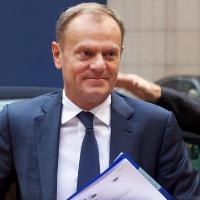
(BRATISLAVA) – EU heads of government or state meet Friday for an informal summit to map out a new direction for an EU with 27 member countries following the result of the UK’s referendum.
President of the European Council Donald Tusk has been consulting EU leaders on their ideas and expectations for the summit, focusing on what he sees as the EU’s three main challenges: uncontrolled irregular migration, terrorism, and fears of globalisation.
The aim of the summit, says Mr Tusk, is “to bring back political control of Europe’s economic future”.
The summit will, he said, needs to come up with a diagnosis of the Union’s current shortcomings. The EU,he said, needs to demonstrate its strong determination and ability to address the major concerns and worries of its citizens.
Acknowledging an “increasing lack of trust in the European Union, he said his ambition was that “in Bratislava we can agree on the main priorities and what we need to do about them in the next few months,” he said.
Based on his consultation, Mr Tusk believes the EU’s main priorities should be securing external borders of the EU; fighting against terrorism; and bringing globalisation back under control.
On securing borders, he says this is a precondition for a common European asylum policy. Border guards from other EU countries should be sent to support Bulgaria in protecting its border with Turkey.
Borders cannot again be allowed to be overrun by waves of irregular migrants as in 2015
In the fight against terrorism, there is also no alternative to greater European coordination and cooperation, said Mr Tusk.
A tightening of Europe’s borders is on the cards. Here he is looking for a pledge that all people, including EU citizens, who cross the EU’s external borders, are checked against the relevant databases.
On globalisation, he believes the EU needs to “take back control”, so that European citizens can again see globalisation as an opportunity, not a threat.


